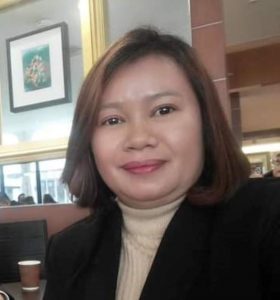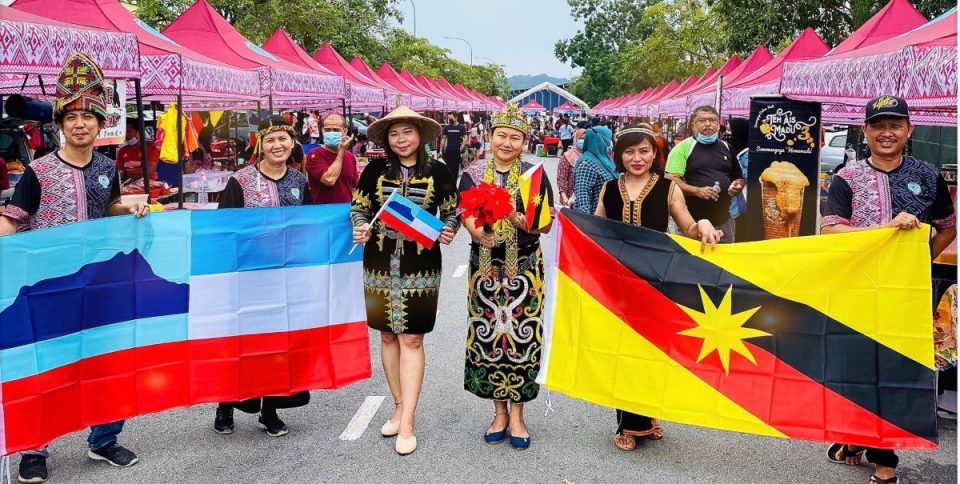IT is estimated that there are currently over 150,000 people from Sabah and Sarawak living and working in the Klang Valley. Separated by more than a thousand kilometres from their place of birth across the South China Sea, these people have learned to call the most densely populated part of the peninsula their second home. Selangor Journal speaks to Persatuan Anak Borneo Semenanjung and Pasar Borneo Seri Kembangan representatives to find out the many challenges facing Sabahans and Sarawakians here, especially during the Covid-19 pandemic and how they will be celebrating Malaysia Day on September 16.
By Alang Bendahara
There are many challenges faced by Malaysians who leave their home states to find work or seek a better life in the Klang Valley, but none so challenging as for the people of Borneo who have to fly across land and sea, leaving behind the comforts of their mother tongue, traditions and delicacies.
Persatuan Anak Borneo Semenanjung (ABS) deputy chairman Gangging @ Ling Sanggau said the highest number of migrants from Borneo reside in the Klang Valley, with an estimated 150,000 working in factories, the armed forces, the police force and as other types of government servants.
She added that most Borneans come to the Klang Valley to work, yet there are clusters of students in higher learning institutions and others who have settled down here after getting married to the locals.
Distance complicates matters
According to Ling, the main challenge migrant Borneans face is unemployment, often leading to financial difficulties and struggles in getting their basic needs.
She said it was a discussion on precisely this problem between herself and her four friends that led to the creation of ABS in June 2019. ABS is a non-governmental organisation with a 2,000-strong membership that helps Borneans in the Klang Valley, Negeri Sembilan, Johor, Pahang, Melaka and a few other states.
“When Borneo people in Semenanjung fall ill or die, they have no one here. This is where our association comes in,” she said.

Ling said it is costly to transport bodies from the peninsula back to Borneo, and also costly for the sick to go back home or for their families to come and visit.
“So ABS acts as a platform to collect funds to help them, since we are a registered NGO and trusted, we use the Facebook platform to raise the money needed.”
Also due to the distance, Ling said it is difficult to relay information from the Sabah and Sarawak governments to their people here, which is why ABS acts as a channel to give out information from agencies and departments that are vital for the welfare and wellbeing of the Borneans here.
Satisfying the longing
Few things are harder to bear than the longing for a taste of home when one is a thousand kilometres away, which is why Pasar Borneo Seri Kembangan was set up in April 2016, in Selangor.
Its president, Nelson Entap Anak Engin, said the idea of setting up a market with 100 per cent of Borneo products and run only by traders of Borneo descent was initially a hard sell when he and a few others introduced it.
“We wanted it to be a market selling only authentic Borneo foods, drinks, fruits, vegetables, handicrafts and many others.
Also, we only wanted Borneo people as its traders or those who are married to Borneo people,” he said.
For a few years, they applied for a permit with local authorities all over the Klang Valley but to no avail, until in 2016, Dr Ong Kian Ming, who was the Serdang MP at that time, helped them get a ‘pasar malam’ or night market site in Seri Kembangan.
From just 20 traders, the morning market which opens every Saturday from 7am to 11am, expanded to 60 traders, catering to hundreds of visitors that surged to 800 people during public holidays and festive seasons.
Among the exotic Borneo foods that can be found at the market are kek lapis Sarawak, mi kolok, ikan pansuh, kuih bongkol, celorot, kompia, terung asam, sayur midin and exotic fruits like dabai, Borneo durian, bambagan/mawangan, tarap and many more.
Nelson has requested for all the traders at the market to only sell halal products, out of respect for the local community.
Bent but not broken
Covid-19 was unexpected and devastating, and not only took human lives but livelihoods as well. Nelson recalled when the market had to close.
“Most of our traders are part-timers who lost their side income overnight.
There are also full-time traders who are forced to sell their products on Facebook using the cash-on-delivery method as they are not well versed in selling on the e-commerce platform.

“Luckily we were fortunate to get financial support from the state governments of Sabah and Sarawak, which we channelled to the affected traders,” he said.
He added that due to the market’s popularity, its members were in the process of opening a second one in Bangi.
Originally scheduled to open in October this year, the plan has been shelved until the next phase of the National Recovery Plan comes into effect.
Ling, too, echoed similar sentiments about ABS and how the NGO has been indispensable in helping to keep many lives afloat and in offering support.
From providing food and financial assistance to managing the dead bodies of Covid-19 victims, such displays of kinship amongst migrant Borneans are what keeps them going.
Restrictions and cancellations
During pre-pandemic times, Ling said ABS had organised many activities for the Borneo community, all of which have since been downsized or altered to be held virtually.
“For the Hari Malaysia celebration this Sept 16, ABS plans to hold it online, as we have done so with our virtual Ratu ABS beauty queen competition.
But luckily we managed to hold an entrepreneur course in Shah Alam and a briefing with the National Unity Ministry physically this year,” she said.
As for Nelson, he said the 100-strong Seri Kembangan market’s association members had to cancel all four of their major events this year.
The events are the start of Hari Gawai and Kaamatan, the closing of Hari Gawai and Kaamatan, Hari Malaysia as well as Christmas and New Year.
Hopes for the future
Looking ahead beyond the pandemic, Nelson envisions having a permanent site for the Borneo community to gather and socialise among themselves as well as with the locals.
“We want to have a place to showcase everything about Borneo — foods, music, culture, handicraft, fruits, delicacies … everything. It will be a tourist attraction.
“Also we want the place to host a yearly gathering of people from Sabah or Sarawak similar to the Lan Berambeh for the people from Sarawak.
“So we hope in the spirit of Malaysian unity or ‘perpaduan’ this dream of ours will become a reality as we continue to find states willing to give us the land or place to do this,” he said.
As for Ling, her wishes are simply for the pandemic to end soon so that ABS can continue with its many planned programmes.
This article first appeared in the Selangor Journal monthly September edition, published on September 6, 2021.





